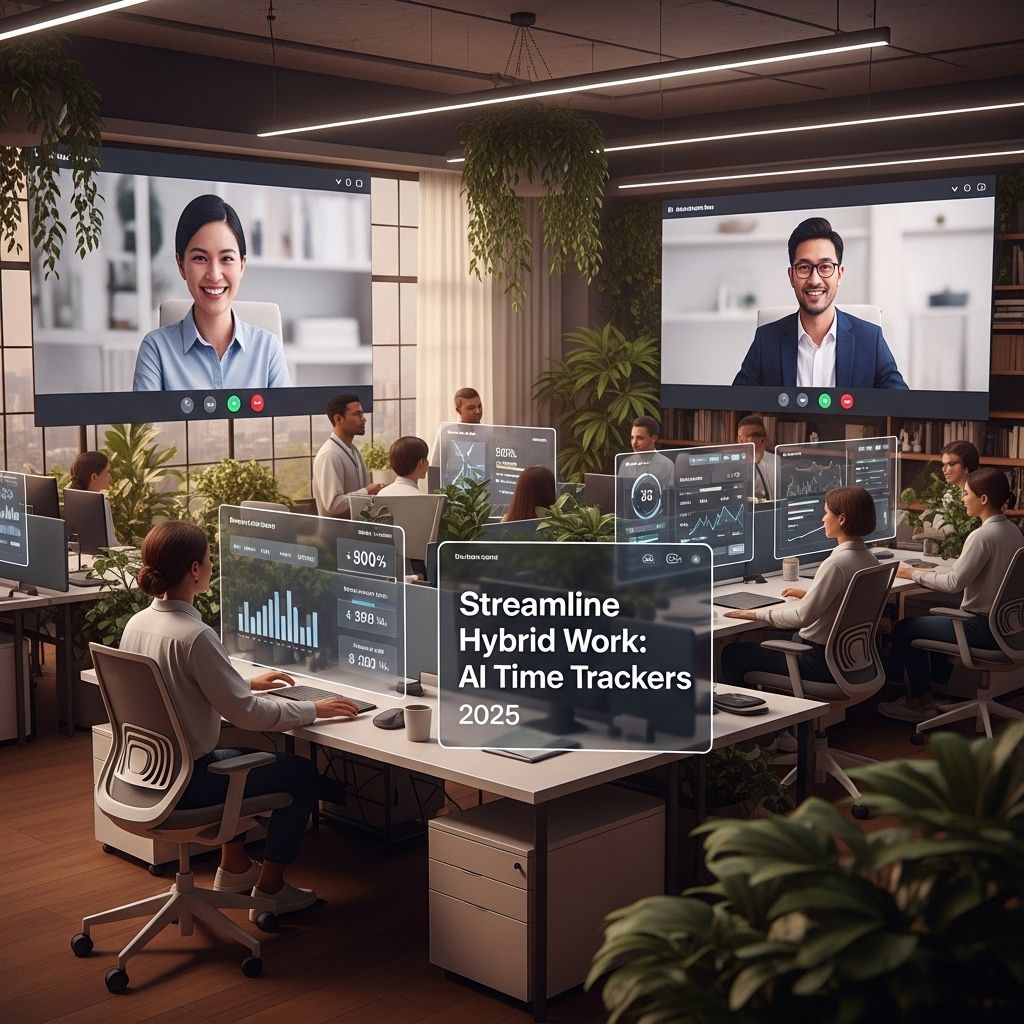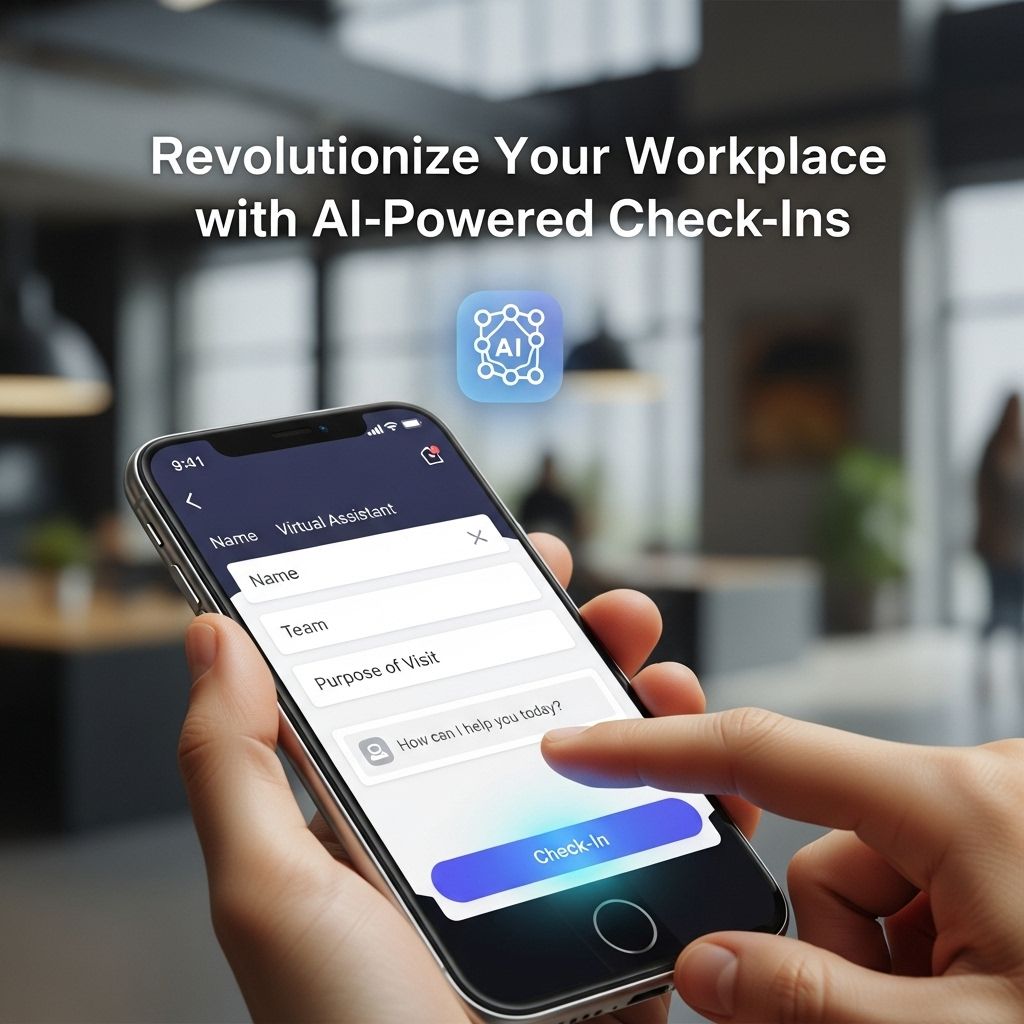Streamline Hybrid Work with AI Time Trackers in 2025
Discover how AI time trackers will revolutionize hybrid work environments in 2025, enhancing productivity and collaboration.

The world of work is evolving rapidly, and hybrid work is now more than just a trend; it’s a way of life for many organizations. As remote and in-office work blend, managing productivity, time, and resources becomes increasingly complex. Enter AI time trackers: sophisticated tools designed to streamline workflows and enhance productivity in hybrid environments. In this article, we will explore the capabilities, benefits, and future of AI time trackers in the context of hybrid work.
As we move into 2025, the hybrid work model is becoming increasingly prevalent, making effective time management essential. AI time trackers can streamline workflows, offering real-time insights and automating tedious tasks, thus enhancing productivity. For those looking to elevate their branding in this dynamic environment, consider exploring resources to find the best 3D logo templates.
Table of Contents
The Rise of Hybrid Work
Hybrid work models, characterized by a combination of in-office and remote work, have gained momentum in recent years. Factors contributing to this shift include:
- Technological advancements making remote work feasible.
- Employee preferences for flexible work arrangements.
- Global events, such as the COVID-19 pandemic, necessitating remote operations.
As organizations adapt to these changes, they must find ways to manage time and productivity effectively.
Understanding AI Time Trackers
AI time trackers utilize artificial intelligence and machine learning algorithms to monitor how employees spend their time, whether in the office or working remotely. These tools collect data on various activities and provide insights that can help optimize workflows.
Core Features of AI Time Trackers
AI time tracking tools come equipped with a host of features that enhance their functionality:
| Feature | Description |
|---|---|
| Automated Time Tracking | Tracks time spent on tasks without manual input. |
| Task Categorization | Organizes time spent on projects into specific categories. |
| Real-Time Analytics | Provides real-time insights into productivity and performance. |
| Integration with Other Tools | Seamlessly integrates with project management and communication tools. |
| Reporting and Visualization | Generates detailed reports and visualizations to analyze time usage. |
Benefits of AI Time Trackers in Hybrid Work Environments
Utilizing AI time tracking tools in hybrid work settings yields several significant benefits:
1. Enhanced Productivity
AI time trackers help employees identify time-wasting activities and focus on high-value tasks, ultimately enhancing productivity.
2. Improved Work-Life Balance
By providing insights into how much time employees are working, organizations can encourage healthier work-life boundaries.
3. Data-Driven Decision Making
Management can use the data gathered by time trackers to make informed decisions regarding resource allocation and project management.
4. Accountability and Transparency
With AI time tracking, employees can hold themselves accountable for their productivity, while management gains visibility into team performance.
Challenges and Considerations
While AI time trackers offer numerous advantages, there are also challenges to consider:
1. Privacy Concerns
Employees may feel uneasy about being monitored constantly. Clear communication about how data will be used is essential.
2. Over-Reliance on Technology
Relying solely on automated tracking can overlook the human aspect of work. A balance between AI tools and human judgment is crucial.
3. Implementation Costs
Investing in AI time tracking technology may require significant upfront costs, which some organizations may find burdensome.
The Future Landscape of AI Time Trackers
As we look towards 2025 and beyond, several trends are expected to shape the future of AI time trackers:
1. Increased Personalization
Future platforms are likely to offer personalized time management solutions tailored to individual work styles and preferences.
2. Enhanced Integration with AI
AI capabilities are set to become even more advanced, allowing for predictive analytics and deeper insights into productivity patterns.
3. Focus on Employee Well-Being
The future of work will increasingly emphasize employee well-being, and time trackers will evolve to support a healthier work-life balance.
4. Gamification Elements
Incorporating gamification in time tracking can make the process more engaging for employees, promoting a culture of productivity.
Choosing the Right AI Time Tracker
With numerous options available, selecting the right AI time tracker for your organization requires careful consideration:
Key Factors to Consider
- Usability: The tool should be user-friendly to encourage adoption.
- Integration: Ensure the tracker integrates seamlessly with your existing tools.
- Data Security: Verify that the platform adheres to data protection regulations.
- Customer Support: Strong support and training options are crucial for effective implementation.
Conclusion
AI time trackers are poised to transform hybrid work environments by enhancing productivity, promoting accountability, and encouraging a healthier work-life balance. As organizations navigate the complexities of this new work paradigm, embracing technology will be key to staying competitive. By understanding the benefits and challenges associated with AI time trackers, businesses can make informed decisions that align with their goals and foster a thriving hybrid culture.
FAQ
What are AI time trackers for hybrid work?
AI time trackers are advanced software tools that utilize artificial intelligence to monitor and analyze employee productivity in hybrid work environments, helping organizations optimize workflows and manage time effectively.
How can AI time trackers improve productivity in 2025?
In 2025, AI time trackers can enhance productivity by providing real-time insights into work habits, identifying bottlenecks, and offering personalized recommendations for time management.
Are AI time trackers suitable for all industries?
Yes, AI time trackers are versatile and can be tailored to fit the needs of various industries, from tech to healthcare, making them a valuable tool for any hybrid work model.
What features should I look for in an AI time tracker?
Key features to consider include automated tracking, reporting analytics, integration capabilities, user-friendly interfaces, and customizable settings to align with your team’s specific needs.
How do AI time trackers ensure employee privacy?
Reputable AI time trackers prioritize employee privacy by implementing data encryption, anonymous tracking options, and compliance with privacy regulations to protect sensitive information.
Can AI time trackers help with work-life balance?
Yes, by providing insights into work patterns, AI time trackers can help employees manage their time better, leading to improved work-life balance and reduced burnout in hybrid work settings.

